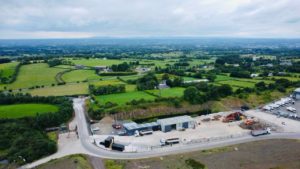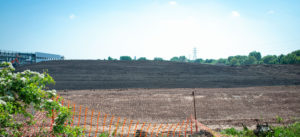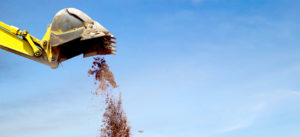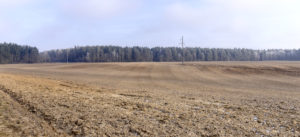It is under your feet and you probably don’t think much about soil unless you’re digging your garden. But there’s more to it than just something to grow your vegetables or bedding plants in.
Soil has a fundamentally important part to play in our lives. So, looking after it is essential, especially if it has become contaminated.
But what are the benefits and why do we need healthy soil? And how does it impact the world so much that it even has its own honorary day? Hopefully this short guide will help.
Foundation of food
Healthy soils are the foundation of the food system. It is the basis for agriculture and the medium in which the majority of food-producing plants grow. It produces healthy crops that in turn nourish people and animals. Indeed, its quality is directly linked to food quality and quantity.
Climate change
Climate change is a big topic! But did you know soil could solve some of the troubling questions on this issue? Storing more carbon in it helps to remove carbon dioxide from the atmosphere. But it also helps release nutrients for plant growth and improves the structure of it, enhancing how well it retains water.
Other benefits
There are many other benefits; for example, when compacted it can prevent crop root growth and reduce the yield of crops. The presence of earthworms, which have been known to improve its structure, are linked to increased crop yields.
It also supports biodiversity by providing a diverse range of habitats for the many organisms that live within it. In turn, organisms, such as earthworms, can directly alter its structure. Plant root systems release compounds which can bind particles together.
The relationship between structure and soil communities is complex and different groups of organisms respond differently to changes in its structure.
Damaging soil
Soil is under threat — which may sound a little bit dramatic. But the consequences could be huge! There are many reasons why it may become damaged. The use of heavy machinery is known to compact soil and makes it is less permeable to water. This increases the likelihood of erosion and flooding.
High livestock densities can also compact the soil. Overworking the soil, for instance through tillage, can destroy its solids, and reduce its organic matter and nutrients.
Industrial use of land also leaves a legacy and while soil can be left scarred by contamination from such use, it can be restored. Remediation, such as our LockedIn® treatment, can provide a redress for the soil so that it does not need to be sent to landfill.
What can you do?
We all have a responsibility to preserve and keep healthy soil. If we don’t, so many areas of life could be impacted. Interventions that are beneficial for its structure include planting cover crops, hedgerows or key strips and encouraging wildlife such as earthworms. These act as ‘ecosystem engineers’ and aerate it as they burrow.
If you want to know more about how we make contaminated soil safe to reuse instead of sending to landfill, contact us today.








